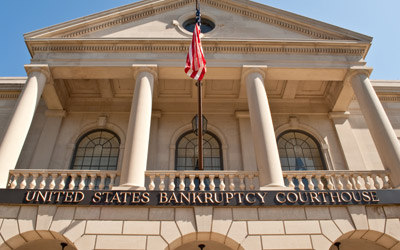FAQ'S
Covered in this Article:
- What is a reaffirmation?
- Do I have to reaffirm any debts?
- Do I have to reaffirm on the same terms?
- Should I reaffirm?
- Should a debtor reaffirm any of their my debts to “build up” their credit after bankruptcy?
- Do I have other options for secured debts?
- Do I have to reaffirm car loans, home mortgages?
- And what about credit cards and department store cards?
1. What is a reaffirmation?
Although you have filed bankruptcy to cancel your debts, you still have the option to sign a written agreement to “reaffirm” a debt. If you choose to reaffirm then you agree to be legally obligated to pay the debt despite filing for bankruptcy. If you reaffirm then the debt is not canceled by a bankruptcy. If you fall behind on a reaffirmed debt, then you can get collection calls, be sued, and possibly have your paycheck garnish or other property seized. Reaffirming a debt is a very serious matter. You should never agree to a reaffirmation without a very good reason.
2. Do I have to reaffirm any debts?
No. Reaffirmation is always optional. It is not required by bankruptcy law or any other law. If a creditor tries to pressure you to reaffirm, remember you can always say no.
3. Do I have to reaffirm on the same terms?
No. A reaffirmation is a new contract between you and the lender. You should try to convince the creditor to agree to better terms such as a lower balance or interest rate. You can also try to negotiate a reduction in the amount you owe. The lender may refuse but it is always worth a try.
4. Should I reaffirm?
If you are thinking about reaffirming, then your first question should always be whether you can afford the monthly payments. Reaffirming any debt means that you are agreeing to make the payments every month, and to face the consequences if you don’t. If you have any doubts whether you can afford the payments, do not reaffirm. Being cautious is always a good idea when you are giving up your right to have a debt canceled.
5. Before reaffirming you should always consider your other options. For example, instead of reaffirming a car loan you can’t afford, can you get by with a less costly used car for a while?
Some offers to reaffirm may seem very attractive at first. Let’s say a department store lets you keep your credit card if you reaffirm $1,000 out of the $2,000 you owed before bankruptcy. They say it will cost you only $25 per month and they will also give you a $500 line of credit for new purchases. What they might not tell you is that they will give you a new credit card in a few months even if you do not reaffirm. More importantly, though, you should understand that you are agreeing to repay $1000 plus interest that the law says you can have legally canceled. This is a big price to pay for $500 in new credit.
6. Should a debtor reaffirm any of their my debts to “build up” his credit rating after bankruptcy?
In my opinion you should never reaffirm a debt to just rebuild your credit report, and this is just a stupid idea. Many debtors are approached with a reaffirmation agreement by creditors offering the debtor a chance to re-establish credit. After 18 years of bankruptcy practice, I have never recommended any debtor to sign a reaffirmation agreement. It is not necessary to reaffirm your debts to rebuild your credit. If you are thinking about it, make sure you and your attorney understand the ramifications. There is nothing that prevents a debtor from paying his debts without a reaffirmation agreement to rebuild credit. Then, if a debtor default then there is no legal liability, because the debt was already discharged in bankruptcy.
7. Do I have other options for secured debts?
You may be able to keep the collateral on a secured debt by paying the creditor in a lump sum the amount the item is worth rather than what you owe on the loan. This is your legal right under the bankruptcy law to “redeem” the collateral.
Redeeming collateral can save you hundreds of dollars. Since furniture, appliances and other household goods go down in value quickly once they are used, you may redeem them for a lot less than their original cost or what you owe on the account.
You may have another option if the creditor did not loan you the money to buy the collateral, like when a creditor takes a lien on household goods you already have. You may be able to ask the court to “avoid” this kind of lien. This will make the debt unsecured.
8. Do I have to reaffirm car loans, home mortgages?
If you are behind on a car loan or a home mortgage and you can afford to catch up, you can reaffirm and possibly keep your car or home. If the lender agrees to give you the time you need to get caught up on a default, then this may be a good reason to reaffirm. But if you are having trouble staying current with your payments before bankruptcy and your situation has not improved, then reaffirmation may be a mistake. The collateral is likely to be repossessed or foreclosed anyway after bankruptcy, because your obligation to make payments continues. If you have reaffirmed, you could then be required to pay the difference between what the collateral is sold for and what you owe. If you are up to date on your loan, then you may not need to reaffirm to keep your car or home. Some lenders will let you keep your property without signing a reaffirmation as long as you continue to make your payments. Under the BAPCPA now all debtors are required to reaffirm their car loans.
9. And what about credit cards and department store cards?
It is almost never a good idea to reaffirm a credit card. Reaffirming means you will pay bills that your bankruptcy would normally wipe out. That can be a very high price to pay for the convenience of a credit card. ry paying cash for a while. Thereafter, in a few years you can probably obtain a new credit card, that won’t come with a large unpaid balance.
If you do reaffirm, try to get something in return, like a lower balance, no interest on the balance, or a reasonable interest rate on any new credit. Don’t be stuck paying 18% – 21% or higher!
Some department store credit cards may be secured. The things you buy with the credit card may be collateral. The store might tell you that they will repossess what you bought, such as a TV, VCR, or sofa, if you do not reaffirm the debt. Most of the time, stores will not repossess used merchandise. So, after a bankruptcy, it is much less likely that a department store would repossess “collateral” than a car lender.
However, repossession is possible. You have to decide how important the item is to you or your family. If you can replace it cheaply or live without it, then you should not reaffirm. You can still shop at the store by paying cash, and the store may offer you a new credit card even if you don’t reaffirm. (Just make sure that your old balance is not added into the new account).
For Example;
Some offers to reaffirm may seem attractive at first. Let’s say a department store lets you keep your credit card if you reaffirm $1,000 out of the $2,000 you owed before bankruptcy. They say it will cost you only $25 per month and they will also give you a $500 line of credit for new purchases. What they might not tell you is that they will give you a new credit card in a few months even if you do not reaffirm. More importantly, though, you should understand that you are agreeing to repay $1,000 plus interest that the law says you can have legally canceled. This is a big price to pay for $500 in new credit.






